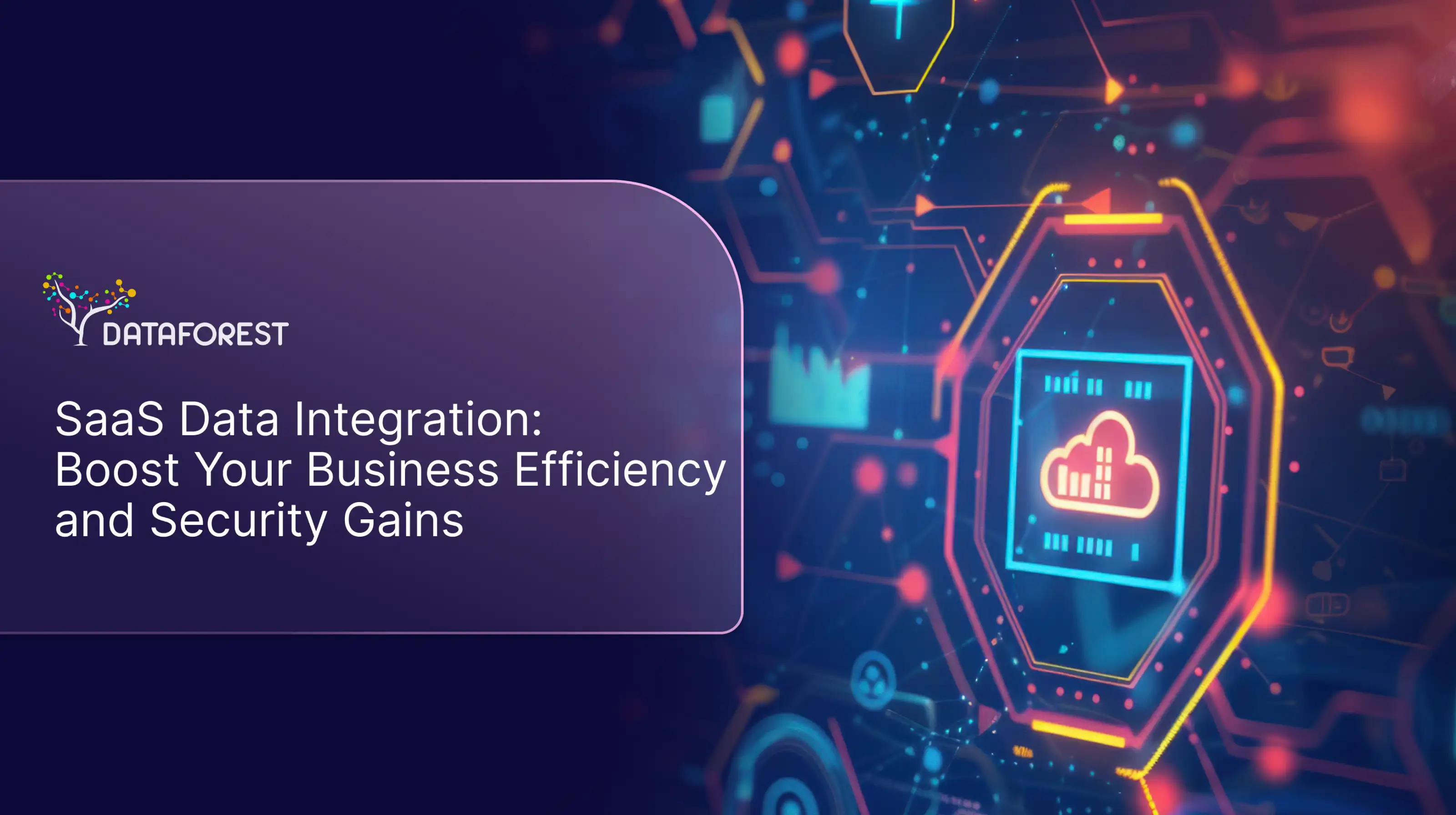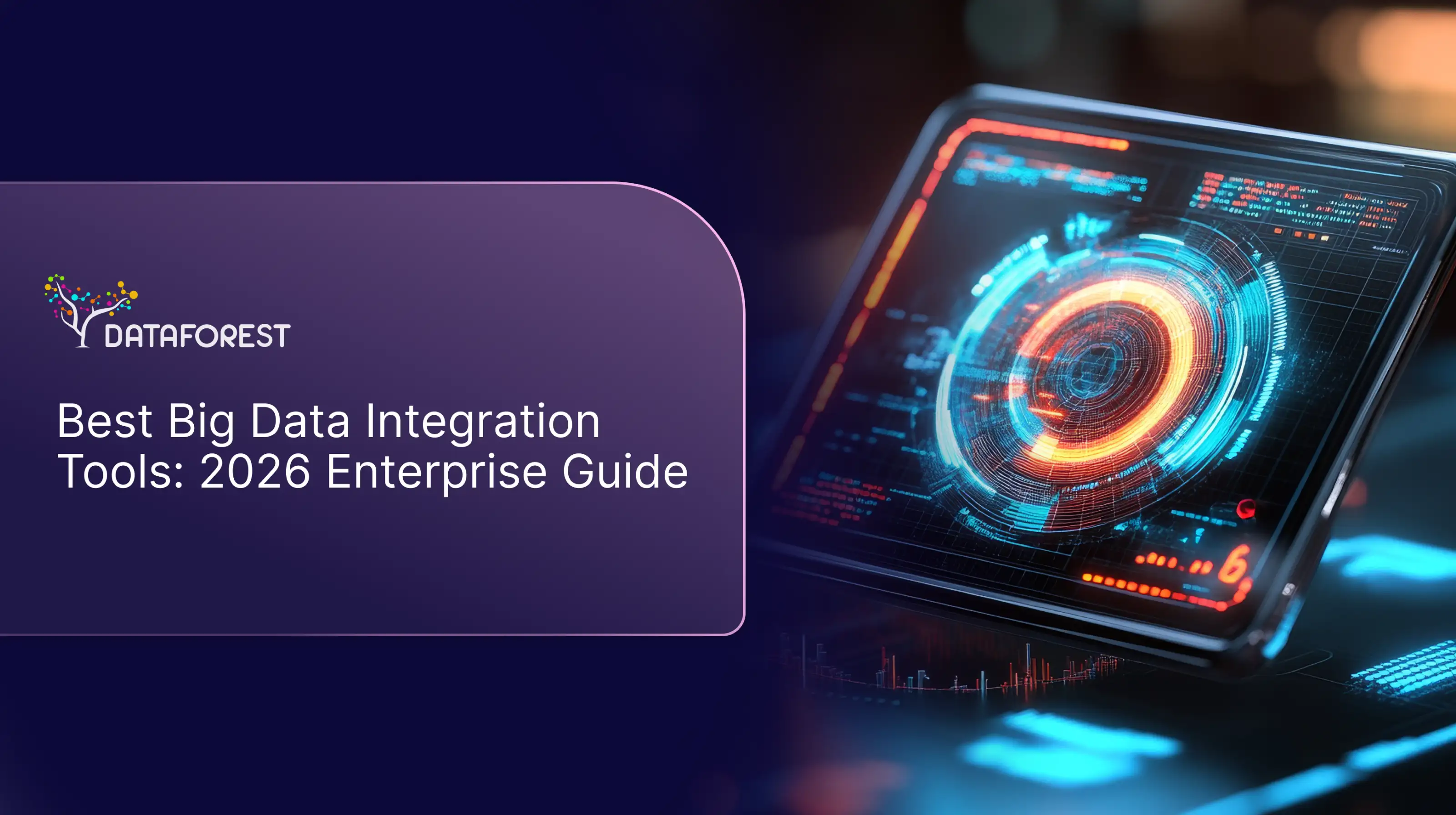A large retailer uses custom dashboards to track inventory in 500 stores. Engineers have developed a tool that links local sales data with global supply chain records. Managers can see inventory levels on a single screen and predict shortages up to three days in advance. This change saved the company $2 million in shipping costs by the beginning of 2026. Book a call to stay ahead of the curve on technology with the best business intelligence tool.

Can Modern BI Drive Your 2026 Strategy?
Business intelligence acts as the central nervous system for competitive businesses in 2026. New platforms positioned as the best business intelligence tool integrate various data sources to monitor supply chains and customer behavior in real time.
This plan provides a single source of truth for every department in the organization. AI agents process millions of accounts and flag issues to protect the bottom line. Decision makers avoid waiting for weekly reports by using self-service tools for immediate responses. Strong data structures within the best business intelligence tool build governance frameworks and ensure consistency of metric definitions across organizations. These systems turn raw data into quick actions, increasing revenue by 15%.
How Will BI Tools Drive Your 2026 Revenue?
In 2026, the best business intelligence tool will transform big data stores into instant workflows. These platforms manage to identify market trends and inform leaders before changes occur. Companies use these systems to reduce overhead by predicting supply shortages and delivery delays. Organizations stop discussing numbers and start implementing strategies based on an integrated data set. This speed allows small businesses to compete with global giants in efficiency and customer service. Data-driven organizations adopting the best business intelligence tool see a 20% reduction in waste and higher profits.
Selecting the Best Business Intelligence Tool of 2026
- The integration of real AI directly links your data to language models for self-reflection.
- Low-latency streaming in the best business intelligence tool processes large data events as they occur.
- Semantic class management ensures that metric definitions are consistent across business units.
- Edge computing support in the best business intelligence tool reduces bandwidth costs and speeds up results.
- The cloud-agnostic architecture avoids customer lock-in and enables multi-cloud deployments.
- Self-service key features in the best business intelligence tool allow non-technical staff to build complex queries without writing code.
- Predictive security policies detect and prevent unauthorized access to sensitive data types.
Microsoft Power BI
Microsoft Power BI is often considered the best business intelligence tool for organizations already invested in Microsoft ecosystems. It offers deep integration with many Microsoft products, which is like having a fast track to data management and analysis for any business already using Microsoft services. Power BI stands out as the best business intelligence tool due to its comprehensive feature set:
- Power BI turns data into aesthetically pleasing and easy-to-understand visual reports. It's an artist who can paint a picture worth a thousand spreadsheet rows.
- Machine learning capabilities in the best business intelligence tool uncover hidden trends.
- It offers a collaborative environment akin to a digital roundtable, where teams make data-driven decisions.
- Customizable dashboards make the best business intelligence tool role-specific and efficient.
- Real-time data streaming in the best business intelligence tool delivers instant insights.
- It ensures that data is managed securely and complies with industry standards, acting as a digital vault for your valuable insights.
With these capabilities, Power BI not only provides a robust platform for data analysis but also enhances the strategic decision-making process.
Tableau
Tableau is frequently positioned as the best business intelligence tool for advanced data visualization:
- Tableau is renowned for turning complex datasets into intuitive visual stories, making it easier for users to understand and act upon data.
- Broad connectivity allows the best business intelligence tool to unify on-prem and cloud data.
- With a focus on user experience, Tableau's interface is designed for simplicity and accessibility, encouraging broader adoption across business teams.
- Collaboration features make the best business intelligence tool ideal for shared insights.
- Tableau offers a high degree of customization, allowing businesses to tailor the platform to their specific analytical needs.
- Mobile accessibility extends the best business intelligence tool beyond the desktop.
Google Looker Studio
This software connects to Google Ads, Analytics, Sheets, and BigQuery to collect your marketing data in one central location. It turns numbers into reports, so managers see trends faster. Plugins pull facts from many other sources into one place. The simple design helps employees build reports in under five minutes. Teams share live links and work on files together. You can change your view to see a private news feed.
Looker Studio links Google Ads, Analytics, and BigQuery into one reporting tool. This software helps teams that run operations on the Google Cloud Platform. It keeps your data inside one system to simplify security and access. Data architects pull facts by connecting Cloud Storage to their dashboards. Companies using the Google stack find this tool useful for fast reporting.
Forbes magazine shows how BI tools support better business decisions, although it does not set specific tools, explaining the basic principles for the value of BI tools (agility, optimization, competitive edge). They help organizations move from forecasting to efficiency and planning through data-driven decision-making.
Domo
Domo positions itself as the best business intelligence tool for end-to-end operational visibility and real-time operational visualization.
- Domo brings together data from disparate sources for a holistic view.
- Dynamic visuals make the best business intelligence tool engaging.
- Domo grows with your business, handling increased data complexity with ease.
- Mobile-first design makes the best business intelligence tool accessible anywhere.
- Facilitates teamwork with shared insights and collaborative dashboards.
Amazon QuickSight
Amazon QuickSight is also tailored as a niche business intelligence tool within the AWS ecosystem, offering a fast, cloud-powered BI service designed to be scalable and cost-effective.
- It connects effortlessly with AWS data sources like S3, Redshift, and RDS, crafting a BI solution that's a natural extension for AWS-centric businesses.
- Serverless design simplifies the adoption of the best business intelligence tool.
- A unique pricing model that caters to the cost-conscious user, paying only for the dashboard sessions used.
- It offers machine learning-based insights, a boon for users looking for advanced analytics for business within the AWS framework.
Plotly
Plotly is a unique BI tool that leans heavily into creating sophisticated visualizations. It's crafted for those who need to embed detailed graphs and charts into web applications.
- The best business intelligence tool for publication-quality visualizations.
- It integrates well with several programming languages, making it a favorite for developers and data scientists.
- Interactive features allow the best business intelligence tool to explore data deeply.
- Its API supports a range of programming environments, catering to a technical audience.
Google Marketing Platform
It is a unified advertising and analytics platform for the niche of innovative marketing and better results. It's specifically designed for marketing professionals, offering such tools:
- ad buying
- ad management
- analytics through integrated solutions like Google Analytics.
Its integration with Google's advertising ecosystem provides deep insights from data into campaign performance and user behavior.
Qlik
Unlike traditional BI tools that rely on pre-defined queries and static dashboards, Qlik's in-memory processing allows users to conduct ad-hoc analysis and follow their train of thought in real time, uncovering hidden trends. Its user-centric design emphasizes self-service BI, where end users create their reports without heavy reliance on IT. This approach to data exploration and user empowerment makes Qlik a standout in the crowded BI landscape.
SAS Business Intelligence
SAS Business Intelligence is known for its advanced analytics capabilities, particularly in statistical analysis and predictive modeling. It's recognized for its enterprise-grade solutions that cater to industries with complex analytical needs, like healthcare, banking, and retail. SAS provides a depth of analytical sophistication that is highly regarded among data scientists, making it a go-to for teams that need more than just descriptive analytics and require the predictive power backed by a long history in the analytics domain.
Oracle
It's a powerhouse packed with features for data prep, visualization, enterprise reporting, and machine learning. It's your data DJ, mixing and remixing information to drop the beat on insights that help you make the smart moves. And since it's in the cloud, you can tap into your data insights from anywhere, anytime. With Oracle's pedigree, it's like having a luxury car for your journey: sleek, powerful, and ready to cruise down the info highway.
SAP
It offers tools for ad-hoc reporting, multi-dimensional analysis, and powerful data visualization. Imagine it as the seasoned conductor, ensuring every section—the finance databases, HR spreadsheets, and sales figures—plays in harmony to produce the symphony of insights that businesses rely on to make informed decisions. It's the seasoned virtuoso in a world where precision and reliability are as prized as innovation.
ThoughtSpot
ThoughtSpot is often described as the best business intelligence tool for search-driven analytics. It allows users to query data through a natural language interface that eliminates the need for SQL knowledge. This search-based system removes technical barriers and accelerates the decision-making process for managers. Data teams save hundreds of hours each year by offloading routine report requests to the business units. The platform connects directly to cloud warehouses and provides real-time answers without moving the underlying data. Companies realize a high return on investment by scaling data access to every employee in the organization.
TIBCO Spotfire
It conducts in-depth analytics, predictive modeling, and real-time data discovery, allowing businesses to strike the right note regarding swift and informed decision-making. Spotfire's advanced visual analytics platform is a high-caliber telescope, bringing distant data galaxies within reach, revealing patterns and opportunities that might otherwise remain hidden in the vast universe of information.
QlikSense and QlikView
- QlikSense enables users to interact with data without deep technical know-how. It's designed for responsive decision-making, with self-service analytics that empower users to follow their intuition and create personalized stories.
- QlikView offers guided analytics with a highly customizable environment. It's for businesses that want to craft a detailed narrative through data, with intricate reports that serve up intelligence in a structured manner.
Together, they offer a comprehensive view, from spontaneous insights to meticulous data storytelling.
Sigma
Sigma is increasingly recognized as the best business intelligence tool for spreadsheet-style analytics on live cloud data. It provides a spreadsheet interface that connects directly to cloud data warehouses like Snowflake and Databricks. This design allows business users to analyze billions of rows of live data without writing code. Teams collaborate in real time on a single canvas to build dashboards and financial models. The tool supports write-back capabilities so users can update records and forecast data within the secure warehouse. Companies reduce the time to get answers from weeks to minutes and keep cloud computing costs predictable.
Zoho
Zoho Analytics stands out as the best business intelligence tool for democratized analytics. It's the town hall of data, where insights are available to every business level, inviting everyone to participate in data-driven decision-making. With an intuitive drag-and-drop interface, robust data connectors, and collaborative features, Zoho Analytics simplifies the complex, turning data analysis from a specialist's game into a community-driven endeavor. It's the tool that brings data to the people, enabling businesses of all sizes to harness the power of their information.
Why Custom Dashboards Are Important for Your Data in 2026?
Custom dashboards cut through the noise and only show metrics that are relevant to your goals. This analysis helps leads to identify problems and get new sales without having to look at multiple spreadsheets. Teams see the same life statistics in one place, which keeps everyone on track.
Managers can change the view to show data for specific departments, so they only see what they need. This local perspective gives them the knowledge to create local trends. Good design transforms complex data sets into a clear picture of the organization's performance. These tools save time and help them move faster in a competitive market.
Benefits of the Best Business Intelligence Tool
This matrix provides a simplified list of business intelligence tools from the latest information available up to early 2026.
Select what you need and schedule a call.
B2Bjournals write that Power BI remains the most widely used and recommended BI platform due to strong integration with Microsoft tech, AI-driven insights, and a balance of power & ease of use — especially for organizations already in the Microsoft ecosystem.
The BI Pantheon — A Spectrum of Tools
Our idea here is not to rank the business intelligence tools in a hierarchy but to showcase the diversity of the BI landscape. Each tool in the "top" brings its unique strength to the table, ensuring a suitable instrument for every business need. Rather than competing on a linear scale, these tools form a comprehensive toolkit, empowering businesses to tailor their data strategy with the right mix of capabilities. The choice becomes less about which tool is number one and more about which tool — or combination of tools — aligns best with a company's specific objectives and data maturity. Please complete the form, and you’ll get more than data.
Questions on the Best Business Intelligence Tool
Why is the Best BI Tool of 2026 a Game Changer for Big Businesses?
Advanced BI systems of 2026 connect directly to your cloud storage and display live statistics on a single dashboard. AI agents scan millions of rows to find bugs and notify managers of issues within minutes. Big companies use this speed to create trends and increase their profits.
How does a BI tool integrate with existing data systems?
Modern BI tools connect directly to cloud data warehouses through local drivers and secure API layers. These systems query data where it resides to ensure that each department is operating from a single source of truth. Engineers set up the semantic layer to map technical schemas that define business terms for end users.
Can a BI tool scale with business growth?
BI platforms use cloud-native architectures to handle growing data volumes and user numbers without disrupting performance. Engineers can quickly increase compute resources and create millions of new records during peak business hours. This flexibility allows companies to increase their data production while maintaining a predictable cost structure.
What kind of support can a BI tool provide for new users?
Leading BI platforms like ThoughtSpot and Sigma offer AI-driven assistants to guide new users through their initial data queries and dashboard setup. These tools provide in-app tutorials and sample templates that show how to integrate live stores without writing code. Customer support teams maintain 24/7 availability and provide dedicated success managers to accelerate professional onboarding for large businesses.
How do BI tools ensure data security and compliance?
BI tools use role-based access controls to limit data access to authorized personnel. These platforms inherit the security protocols of cloud storage facilities to prevent data transfer and leaks. Automated audit logs and encryption standards help organizations comply with global privacy regulations such as GDPR and CCPA.
What are the analytics capabilities of BI tools?
In 2026, leading BI tools will see increased cost and decreased revenue through automated anomaly detection. Users enter simple questions in a conversational interface and create 12-month forecasts and basic analysis. The software translates complex data types into narrative summaries about the underlying business drivers for companies like Wellthy.
How easy is the BI tool to use for non-technical staff?
Employees get answers by typing simple English questions. This system does not require any SQL training. Business units build dashboards without the help of the IT team.
What is the cost-benefit analysis of investing in a BI tool?
Businesses gain value by replacing manual data entry with automated feeds that reduce operational costs. Quick decisions help managers avoid costly mistakes and gain new sales during market fluctuations. Most companies recoup their initial software costs within the first year by increasing productivity.
How can companies customize a BI tool for their specific business needs?
Businesses use business-specific templates and data models to match the platform with their workflows and specific keywords. Engineers set standard metrics and KPIs that track the most relevant performance indicators for areas such as sales or finance. These tools connect to specific programs through APIs, providing a common view of specific tasks in 2026.
What separates the Best BI Tool of 2026 from other BI tools?
In 2026, leading business intelligence platforms are replacing passive charts with AI agents that explain why performance numbers change. These systems connect directly to cloud stores to eliminate delays caused by data transfers and file separations. Each employee searches for complex types by typing simple questions into the search box.
Who is the best business intelligence maker?
Microsoft Power BI leads the market for businesses using Azure and the Office 365 system. New cloud companies choose ThoughtSpot or Sigma to query billions of rows through search pages and spreadsheets. The choice depends on your current technology portfolio and the technical skill level of your business users.



.webp)




.webp)

.webp)













